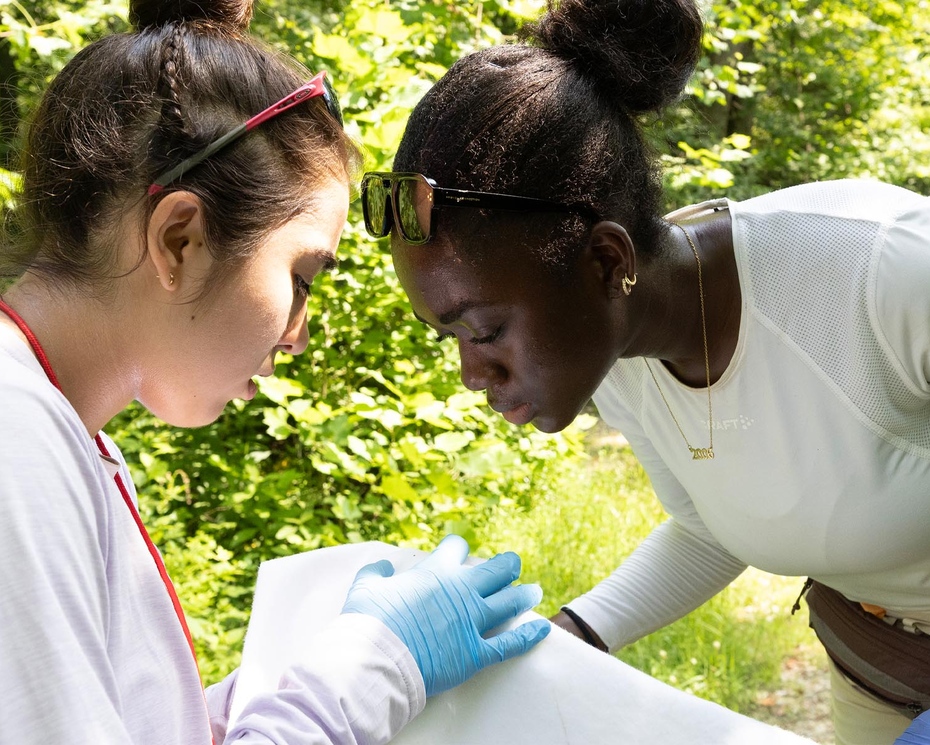The Department of Biology endeavors to provide a comprehensive foundation in concepts and skills across the breadth of biology. This is achieved in part through an introductory core of three courses that prepare students for a deep exploration of sub-disciplines and research methods through subsequent advanced courses. The core covers the major concepts of biology, encompassing an exploration of the natural history of life on Earth, coupled with the basic skills of acquiring and processing information, solving problems, and analyzing data. Our program then allows students the flexibility to explore specific areas of biology in depth through a suite of advanced courses in which they can expand and apply their knowledge and skills.
The major prepares students for careers in science and related fields, as well as graduate and professional schools (including pre-medical, pre-dental and pre-veterinary studies), while allowing students the flexibility to design the program that best suits their specific interests and career goals. In addition, biology majors are offered the opportunity to collaborate with faculty in research and laboratory instruction, to present exceptional work at professional meetings, and to assist in the maintenance of the 350-acre Biological Reserve and other departmental facilities. Information on studies in Pre-Health is provided in the “Special Programs and Opportunities” section of the catalog.
Writing is an integral component of science, and as such, the Biology Department understands that the development of writing skills is essential for all students who pursue the study of biology. The goal for our students is that they emerge as strong writers, able to construct cohesive bodies of written work in which they express clear, concise and logical arguments, supported by empirical evidence and/or information from appropriate sources. A developmental model of writing skills is tightly woven into the biology curriculum to achieve this goal. Our major core curriculum establishes the foundation of good writing practices. Basic grammatical expression is addressed in BIOL 210 - Molecular Biology and Unicellular Life, while BIOL 220 - Multicellular Life focuses on understanding the format of biological literature, culminating in BIOL 230 - Ecology and Evolution, where students write multiple full-length papers. Taken sequentially, BIOL 220 - Multicellular Life and BIOL 230 - Ecology and Evolution serve as one of the W requirements for general education. In our advanced curriculum, students continue to explore more sophisticated levels of writing, including employing distinct disciplinary conventions and engaging with different genres applicable to biological writing. Students who undertake a senior research project write a comprehensive thesis of their work (counting as an additional W requirement), putting into practice the many writing skills that they have developed throughout the curriculum.














